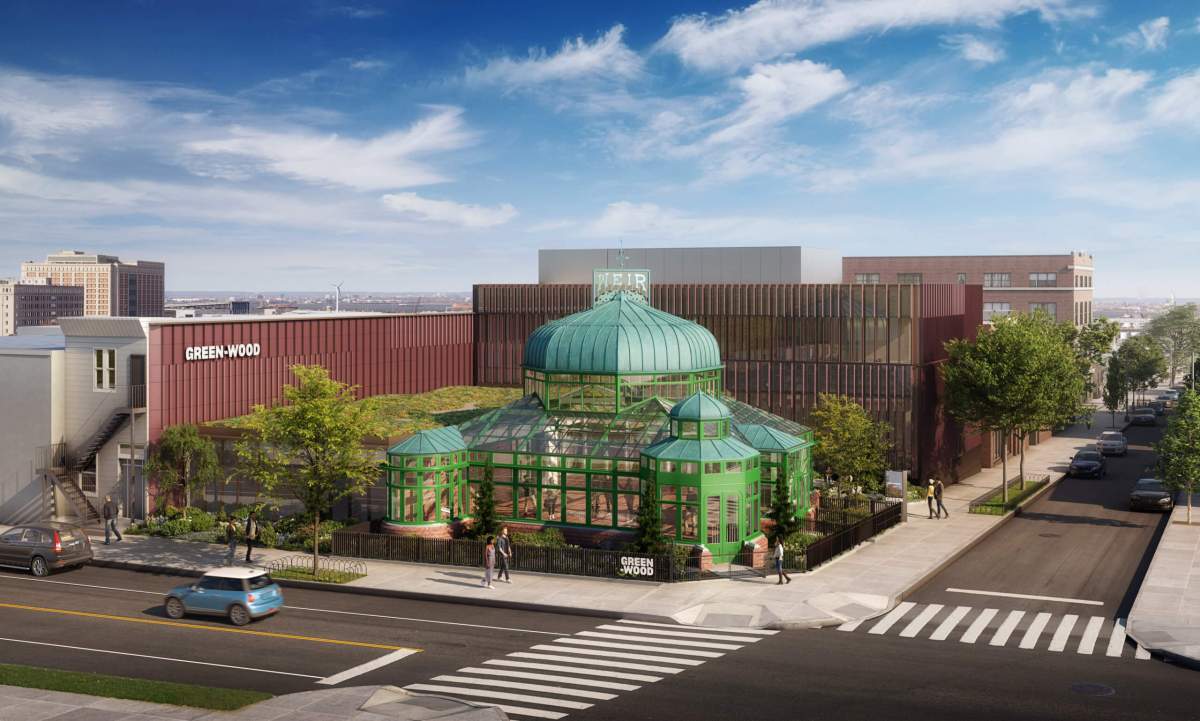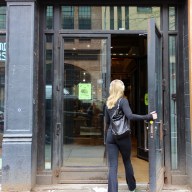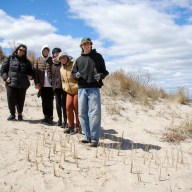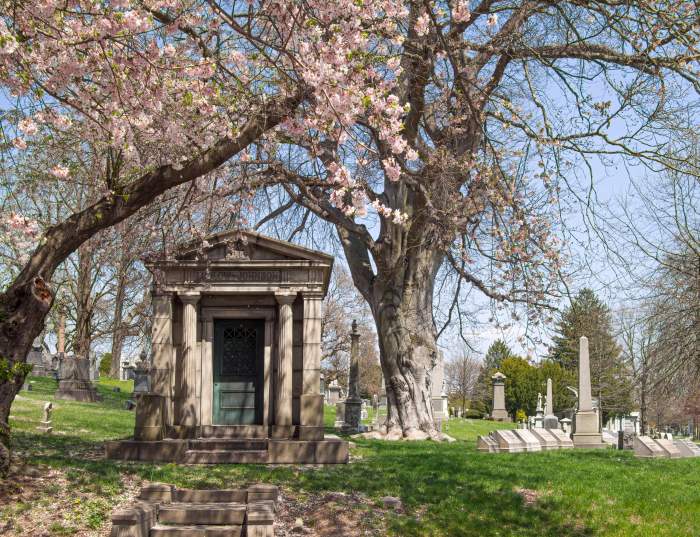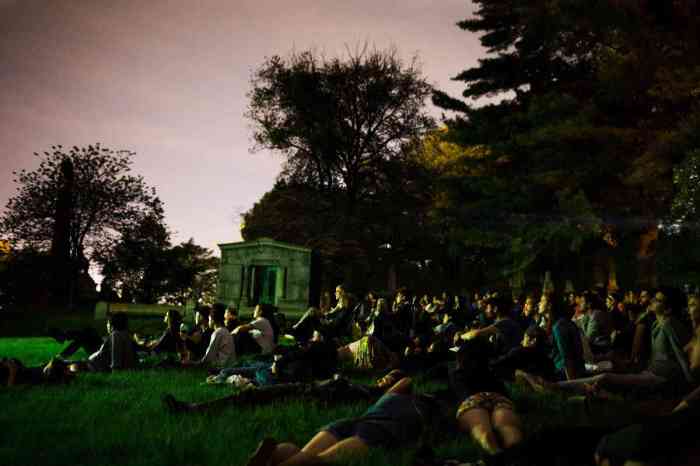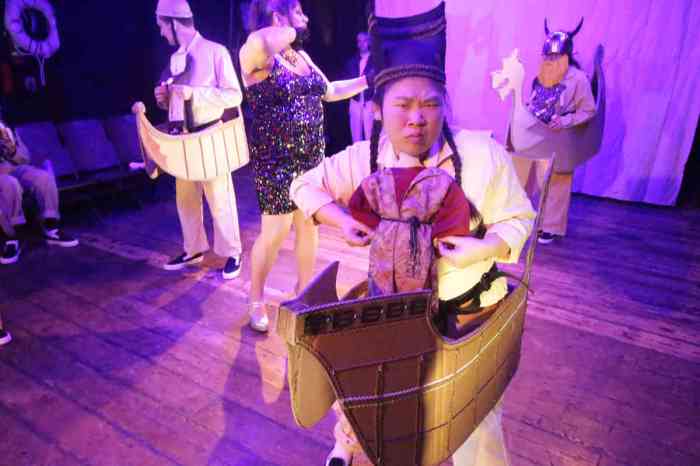Brooklyn’s chief cultural leaders came together at Green-Wood Cemetery on Monday to celebrate the cemetery’s coming Welcome and Education Center — and a handful of other city investments into long-awaited projects at some of the borough’s biggest institutions.
“We are going to have the opportunity to have an educational center right here at Green-Wood Cemetery so that hundreds of school groups will be able to come here and learn so much more about magnificent space and all of the incredible history that is here,” said Department of Cultural Affairs commissioner and former Brooklyn councilmember Laurie Cumbo.
The sprawling cemetery is getting $4.5 million in capital funding, Cumbo announced, as part of a “historic” $127 million investment in the city’s arts and cultural centers. Together with $97 million in capital funding from the City Council and the Big Apple’s five borough presidents and a $237 million expense allocation to the DCLA, the city is funding more than 1,000 cultural organizations citywide this fiscal year.
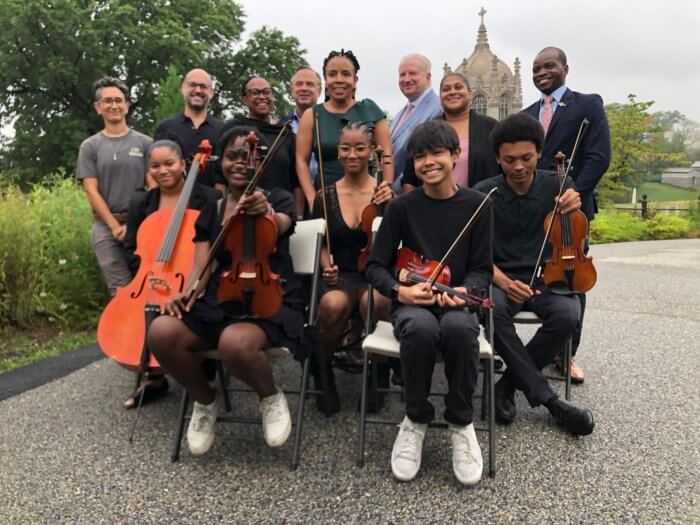
“This is the largest capital and expense budget in New York City’s history, so we are certainly making history,” Cumbo said at the Aug. 1 presser.
The funding is meant to help revitalize the borough’s cultural institutions as they continue to recover from the devastating financial impacts of the coronavirus pandemic.
“As the commissioner of the New York City Department of Cultural Affairs, [I] am determined to make sure funding gets to every part of our city, all five boroughs,” Cumbo said. “We are all worthy of art, we are all worthy of cultural experiences.”
While the city’s cultural spaces often receive private donations, public funding is the lifeblood that gives them the means to conduct necessary improvements and major projects — like Green-Wood’s new educational facility.
“For those of us who run these big old institutions, they are old, they have infrastructure, they have plumbing and heating and lighting and building, and there are all these investments,” said Adrian Benepe, president and chief executive officer at Brooklyn Botanic Garden, which is also receiving capital funding from the city. “Donors like to invest in things but they don’t like investing in plumbing and heating, they don’t like to invest in the roofs and that’s where the Cultural Affairs capital budget comes in.”
The heads of Green-Wood are using their $4.5 million in city funding to build a long-awaited Welcome and Education Center at the corner of 25th Street. The 20,000-square-foot facility will be used to greet visitors to the 478-acre cemetery and provide indoor educational space for guests and students, and will also allow the cemetery’s programming to go year-round.
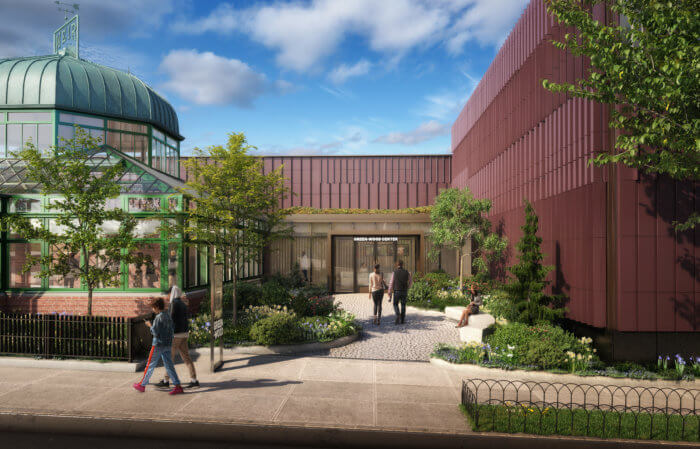
“We have plenty of outdoor space as you can see. We don’t have any indoor space, but we are going to,” said Richard J. Moylan, president of Green-Wood Cemetery. “We are looking forward to breaking ground in September.”
Moylan said the new center has been in the works for a decade, and anticipates construction will take two years to complete.
“We have been working at this for about ten years, and today is really the culmination,” he said, adding that, when the project is finished, “We will have an indoor space to tell the story of our residents, the history of Brooklyn, the history of New York City, the history of America.”
The new facility will also help the cemetery stay on the cutting edge in the not-so-distant future when they don’t have the space to take in new eternal residents,” Moylan said. Instead, its leaders hope the center will further Green-Wood’s mission of providing a space to present the history of Brooklyn, and that it will portray how Green-Wood became the historical landmark so many city dwellers cherish.
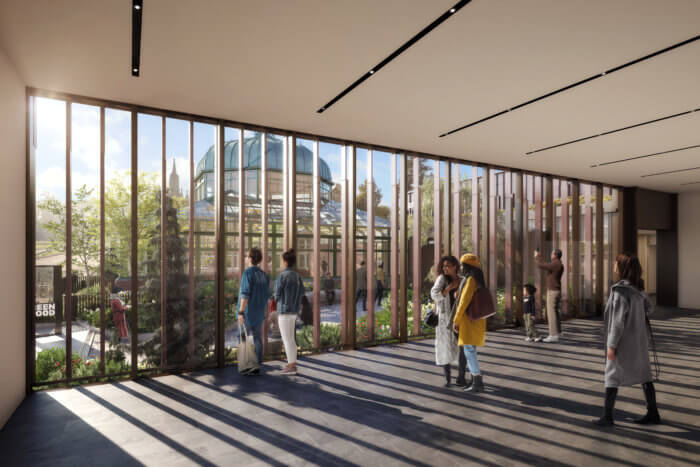
“We are running low on burial space, so 20 years ago when we started thinking about this, we were thinking, ‘What’s going to happen to the space when we are no longer burying dozens of people a day?’” said Moylan. “We don’t want this to be just an empty 500 acres and this will allow us to tell our story of how this evolves.”
Of the $4.5 million city investment to one of the nation’s earliest rural cemetery dating back to 1838, $2 million was allocated by the city Mayor’s Office and another $2.5 million by the City Council. This brings the city’s total investment in the project, to-date, to $13 million.
More Brooklyn institutions to benefit from funding
A handful of other Brooklyn mainstays and cultural institutions will benefit from the capital funding. The Brooklyn Botanic Garden is getting $3 million, Benepe said Monday, which will be used to restore a crumbling section of the green space’s Osborne Garden, which was built in the 1930s by the New Deal-era Works Progress Administration.
“We have a WPA section of the garden. WPA means the 1930s,” Benepe said. “It’s old, it’s falling down, literally. And this money will help us put it back together.”
The Noel Pointer Foundation — a Brooklyn-based nonprofit that runs music instructional classes in underserved schools across the city — will use the money to renovate an old Cobble Hill building into their very own music academy.
“I have been humbled and I am grateful to the mayor, Brooklyn Borough President, City Council and the New York City Department of Cultural Affairs for their capital support to transform the firehouse at 299 Degraw St. into a music academy so that we can continue to provide services for our youth and this city of children so that we can bring music that you heard today to our borough, and across the five boroughs and across the globe,” said Chinita J. Pointer, the executive director of the Noel Pointer Foundation and the wife of the late Noel Pointer.
Other institutions receiving grants from the city’s Department of Cultural Affairs include the Brooklyn Academy of Music, Coney Island’s New York Aquarium, Brooklyn Music School, Brooklyn Youth Chorus, Pioneer Works Art Foundation and the Brooklyn-Queens Conservatory of Music.
“Groups of all sizes and all budgets are benefiting from this cultural budget,” Cumbo said.
The head of the Brooklyn Botanic Garden said cultural breatdth makes New York City what it is.
“The wonderful thing about New York City is that you don’t have to say, ‘Is there something free and fun I can do tonight?’ What you say to yourself is, ‘Which of the many, many, many free and fun things I should do tonight?’” Benepe said. “And that’s only in New York City and it’s only because we have a very vigorous Cultural Affairs Department.”


